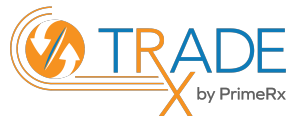While many in the public and private sectors proclaim their passion for reshaping our healthcare system to be more efficient, less expensive, and provide better outcomes, it often seems that the “innovations” introduced leave independent pharmacies holding the bag – or, to be more precise, paying the bill – while patients suffer the consequences.
If recent news stories are an indicator, this condition has not improved in 2015.
AETNA/Coventry boondoggle
When Aetna purchased Coventry Health Care in 2013, the insurer stated the acquisition would make them “well positioned—competitively, strategically, and financially—to meet the evolving needs of the people we serve. “
At the end of 2014, AETNA/Coventry made changes to their Medicare Part D pharmacy network. But those changes were not reflected on their Medicare Plan Finder website. As a result, more than 50,000 people nationwide have been informed that the independent community pharmacy they’ve been relying on for years, and that was advertised as being “in-network,” is actually not part of the AETNA/Coventry network.
Problems stemming from this boondoggle have had serious impacts for pharmacies and patients:
- Some pharmacies in poorly served areas have had to transfer prescriptions to in-network pharmacies that don’t carry the medications prescribed
- In rural areas, patient accounts have been transferred to pharmacies hours away
- Patients who must switch to large chain pharmacies often sacrifice the conveniences of home delivery and special packaging they’ve come to value
And, of course, the problem wasn’t discovered until the Medicare open enrollment period had ended, making it more difficult for patients to find another plan. CMS has not opened a special enrollment period for Aetna enrollees. Instead, patients are helped on a case-by-case basis, if they contact CMS for help.
Read more about this story here and here.
NCPA’s #1 public policy issue
Pharmacy Benefits Managers routinely wait months to update their generic prescription payments after the cost of the drug has gone up. With the cost of many generics skyrocketing, this delayed action puts pharmacies at risk of losing “40 to 100 dollars or more” per prescription, according to NCPA.
Earlier this week, NCPA announced the results of an online survey in which they asked members what the organization’s priorities should be in 2015. With 590 independent pharmacy owners participating, the #1 public policy issue priority was legislation to reduce the lag time in payment updates and increased transparency in “maximum allowable cost” (MAC) calculations.
Reps. Doug Collins (R-Ga.) and Dave Loebsack (D-Iowa) have introduced H.R. 244, to implement these principles. Sixteen states have enacted comparable legislation.
Read more about the legislation and how you can get involved.
Delaware Medicaid plan slashes dispensing reimbursements
The state of Delaware significantly reduced its costs when it dropped Delaware Physicians Care Medicaid and signed a 3-year contract with Highmark Blue Cross Blue Shield of Delaware Medicaid.
Much like the United Healthcare Medicaid plan still available, the Delaware Physicians Care plan paid a pharmacy a reimbursement of around $10 for every prescription it dispensed. Under the new plan, they receive reimbursements as low as 85 cents.
While some pharmacies that serve few Medicaid patients have absorbed the change in stride, those whose patients include a high percentage on Medicaid are suffering. Others have refused to fill prescriptions covered by Highmark’s Medicaid offering.
As a result, some patients are having a difficult time getting their prescriptions filled. One such patient who switched to Highmark’s Medicaid program now hopes the three-day emergency supply of Paxil his pharmacy gives him will be enough to manage his severe seizures.
Read the full story in Delaware Online.
Comparing drug prices helps pharmacies regain control
Each of these stories illustrates how independent pharmacies are increasingly losing control of their independence and the future of their business.
As the numbers have shown, TRxADE’s online marketplace is one of the few proven methods to help you take back control of your pharmacy. When drug suppliers compete for your business, you win. The more you use TRxADE, the more you win.
